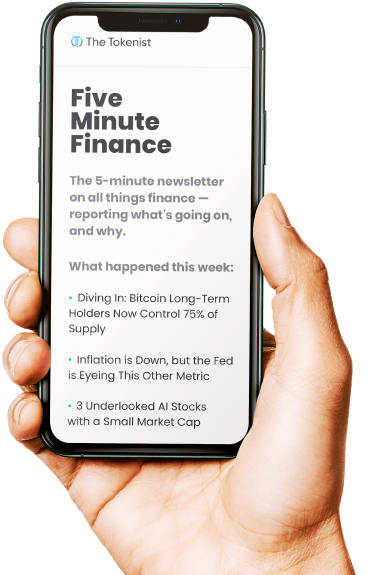
4 Dividend Stocks that Keep Paying Through Any Economy
As long as central banking and money printing continue to monetize debt, the U.S. dollar will keep losing value. To outpace inflation, as each dollar buys less over time, dividend stock investing remains one of the most streamlined investment strategies.
Dividend stock investing not only provides a tangible return through quarterly cash flow but also satisfies the psychological need for stability and control in an uncertain economy. Dividends can also snowball, as investors could use payouts to buy more shares of the stock.
Irrespective of macro conditions, here are four stocks every investor should consider to accumulate and keep passive income coming.
Edison International (NYSE: EIX) – 5.76% dividend yield
Through its electric utility subsidiary, Southern California Edison (SCE), the company is the baseline civilizational layer for over 15 million people in California. To keep it that way, EIX invested $6.8 billion in 2024 to make its grid more resilient against wildfires.
To supply electricity amid the wave of EV charging infrastructure and AI data centers, EIX is expected to expand its assets to around $50 billion by year-end. Institutional investors account for the bulk of EIX shareholders, including pension funds and asset managers such as BlackRock and Vanguard, while retail investors hold only about 11% of ownership.
Edison International pays a quarterly dividend of $0.827 per share, currently priced at $55.73. Tomorrow, on October 28, EIX is scheduled to report its Q3 2025 earnings, estimated at $1.52 EPS by Zacks Consensus Estimate, following a positive 10.2% earnings surprise in Q2.
Join our Telegram group and never miss a breaking digital asset story.
Kimberly-Clark Corp. (NASDAQ: KMB) – 4.19% dividend yield
The 150-year-old Kimberly-Clark generates exceptionally reliable recurring revenue from its personal care products, especially in the women’s hygiene category. With a broad portfolio of brands, from Kleenex and Scott to Depend and Kotex, the company has an entrenched market position that generated $20 billion in net sales during 2024.
It is no surprise, then, that Kimberly-Clark has been paying quarterly dividends since 1935. The company’s dividend payout is $1.259 per share, and the stock is currently priced at $120.01. On Thursday, KMB is scheduled to report Q3 2025 earnings, with an estimated EPS of $1.45.
Although Kimberly-Clark’s business model is robust, it remains vulnerable to inflationary pressures that reduce consumer spending, as well as foreign currency volatility. Nonetheless, after partnering up with Suzano (NYSE: SUZ) in early June for its fiber expertise manufacturing, the company is expected to improve its Powering Care strategy, launched in 2024, to optimize margins.
Altria Group Inc. (NYSE: MO) – 6.65% dividend yield
One of our long-standing dividend picks, Altria Group, continues to capitalize on deeply ingrained consumer habits through its leading tobacco portfolio, anchored by the iconic Marlboro brand. Adapting to shifting preferences, the company successfully transitioned into moist smokeless tobacco (MST) products, vapor devices, and nicotine pouches, generating $23.65 billion in revenue in 2024.
Altria Group operates the most well-known brands and innovative vapor products, from Philip Morris USA and Helix Innovations to Njoy and John Middleton. As such, the company became a dividend aristocrat, having increased its dividend payouts for over 10 years in a row.
Altria Group’s latest quarterly dividend is $1.06 per share, and the stock is currently priced at $63.76. This is just in line with the Wall Street Journal’s average price target consensus of $63.82 per share.
Verizon Communications Inc. (NYSE: VZ) – 7.07% dividend yield
Through its segments, Verizon Consumer Group (VCG) and Verizon Business Group (VBG), the telecom giant provides essential infrastructure that enables the digital age. In addition to fixed broadband and high-speed fiber-optic internet, Verizon is a leader in wireless 5G and 4G LTE networks.
Although the telecommunications industry is capital-intensive and requires continual infrastructure investments, it is also remarkably resilient. Verizon demonstrated this once again in its Q2 earnings report, generating $8.8 billion in free cash flow (FCF) for the first six months, which is up 3.6% year-over-year.
During that period, the company paid $5.7 billion in dividends to shareholders, which is $100 million more than in H1 2024. Likewise, Verizon reported its 4th consecutive growth in Core Prepaid subscribers.
With a 5.2% annualized revenue growth to $34.5 billion, Verizon now pays $0.69 per share, which is currently priced at $39.24. This price level is well below the Wall Street Journal’s average VZ target price consensus of $47.58 per share.
Disclaimer: The author does not hold or have a position in any securities discussed in the article. All stock prices were quoted at the time of writing.




